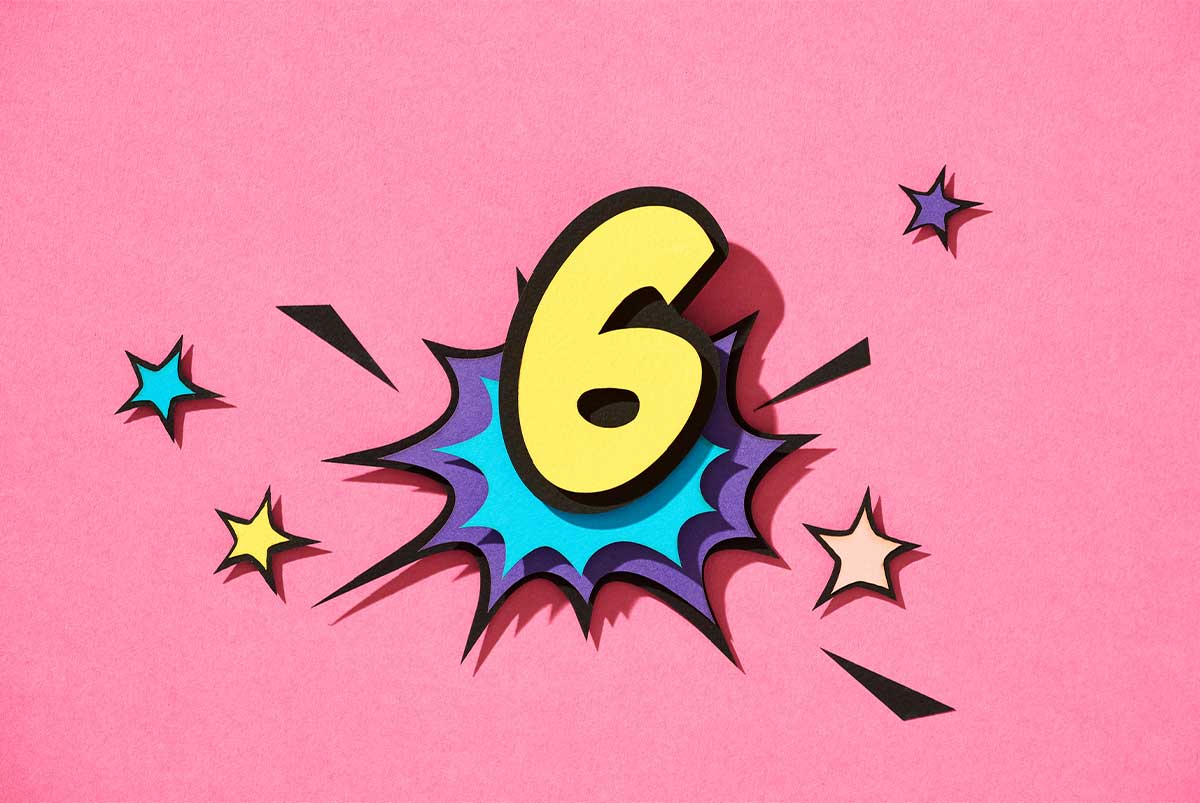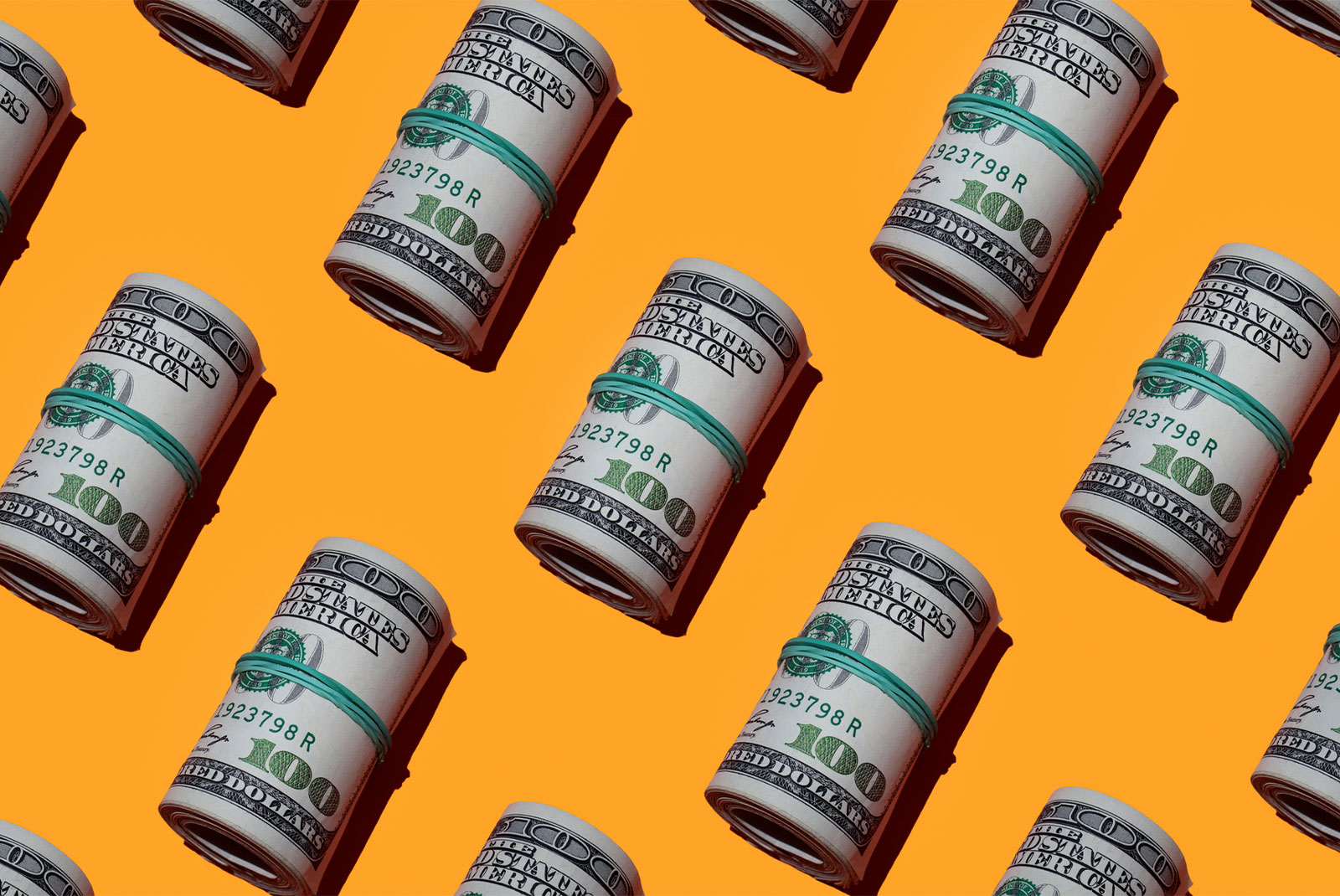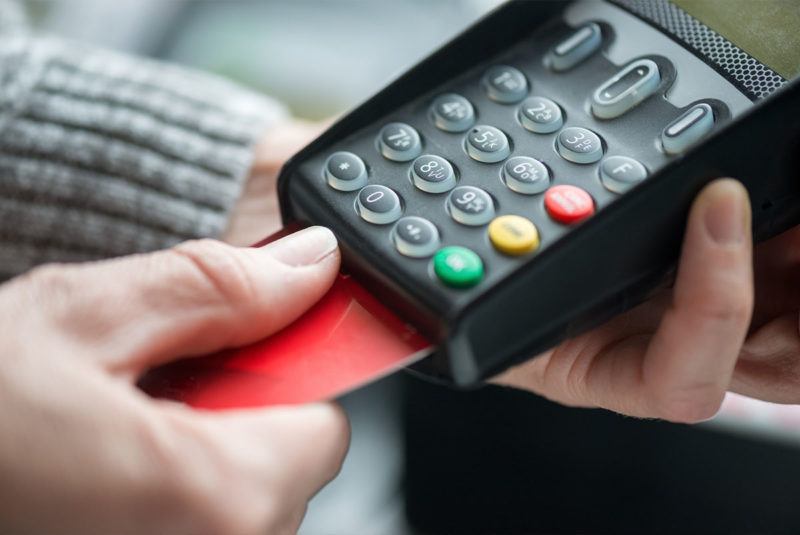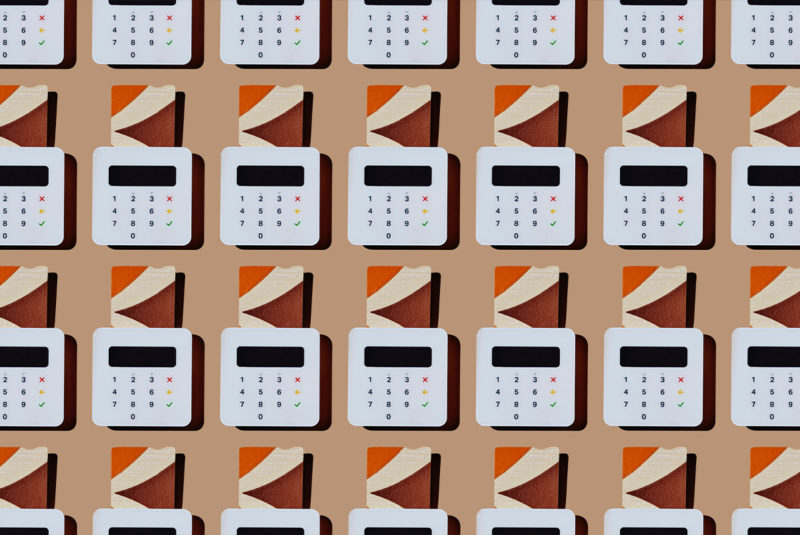Ready to kiss your debt goodbye? Or want to avoid accruing debt in the first place?
Many financial experts will tell you to completely eschew credit cards, with some going as far as calling them “evil.”
While credit cards can certainly lead to unmanageable (and yes, evil) debt, we also believe they can be a useful tool in a debt-free lifestyle. The key is using credit cards in the right way.
Here are six tactics for leading a debt-free life — even with credit cards.
1. Start an Emergency Fund
The first step toward financial freedom is a robust emergency fund. While it might seem irrelevant, the reality is emergency funds are the key to avoiding more debt (and integral to reducing financial stress!).
When you have an emergency fund, and your furnace breaks or your car needs new tires, you can cover the cost without taking out a personal loan or putting the bill on a high-interest credit card.
So, if you don’t already have one, start your emergency fund today. We recommend opening an account at a separate bank so you won’t be tempted to touch the money; a high-yield savings account at a reputable online bank can be a great option.
Then, put aside whatever you can afford, whether it’s $10 a week or $100 a month. To take willpower out of the equation, set up regular automatic withdrawals from your checking account to your emergency savings account.
2. Make a Debt Payoff Plan
If you’re searching for tips on living debt-free, chances are you already have some debt you’d like to get rid of. (If that’s not the case, feel free to skip to the next section.)
To increase your chances of success at paying it off, you’re going to need a plan. First, write down your financial goals, including why you want to become debt-free, as well as your financial situation, including all of your debt balances and interest rates.
Then consider using one of these popular debt repayment tactics:
- Debt snowball: While making the minimum payments on all your debts, throw any extra money toward the debt with the smallest balance. Once that’s paid off, use the money from that newly eliminated bill to help crush your next smallest debt. By accruing these early wins, you’ll gain the momentum you need to conquer your debt for good.
- Debt avalanche: While making the minimum payments on all your debts, throw any extra money toward the debt with the highest interest rate. Once that’s paid off, use that increased cash flow to tackle the debt with the next highest interest. By doing this, you’ll save the most money in interest charges (though research has suggested the snowball method may keep you more motivated).
- Debt consolidation: If you’re overwhelmed by the number of debt payments you’re managing, consider paying them all off with a personal loan or balance transfer. Though this will sometimes lower your interest rate or monthly payments, note you could end up paying more in the long run.
Wondering whether to include student loan debt in your plan? That’s a personal choice.
If paying off your student loans will improve your mental health, go for it. But if you simply want to save the most money, it may be wiser to invest in retirement instead (especially if you have low-interest federal loans). We recommend using a calculator to determine the best path for you.
Alternatively, if you have strong credit scores and a high income, you can also consider refinancing your student loans.
3. Be Smart With Credit Cards
Let’s get one thing straight: You certainly don’t need credit cards to live a debt-free life. But you also don’t need to avoid them like the plague.
When used the right way, credit cards can lead to abundant rewards and improved credit scores, rather than a murky pit of high-interest debt.
If you’re interested in achieving debt freedom — while also using credit cards — here are some basic rules to follow.
Head’s up that these rules will only work when paired with strong self-control. If you have the tendency to overspend when using credit cards, then we’d recommend avoiding them completely. While they aren’t evil, credit cards can certainly make it easier for some people to spend more than they can afford. In those situations, debit cards or secured cards (more on those below!) are a better choice.
Pay your statement balance in full
The cardinal rule of smart credit card use is paying your statement balance in full, each and every month.
Thanks to the grace period offered by most credit card companies, that means you won’t owe any interest on your purchases.
If you choose a credit card without an annual fee, paying your statement balance in full allows you to enjoy all the benefits of credit cards — cash back or travel rewards, enhanced security, and convenience — without paying a cent for the privilege.
There’s one exception to this rule — if you have a 0% interest rate for purchases or balance transfers, you may want to take some time to pay off the full balance. But you’ll still need to make minimum payments each month. If these zero APR opportunities would tempt you to overspend, it might be best to avoid them.
Avoid unrealistic minimum spends
“Get 100,000 bonus points if you spend $15,000 in the first three months!”
Although lucrative signup bonuses can be tempting, you should only pursue one if you can meet the minimum spend without going over your normal budget.
If you generally put $1,000 per month on credit cards, for example, you should only consider bonuses that require you to spend roughly $3,000 in three months.
Anything more, and you’ll be breaking your budget (and worse, maybe going into debt) simply to get some bonus points. See some creative ways to hit minimum spend requirements, while not spending any more than you normally would.
Use balance transfer cards to pay off debt
As noted earlier, balance transfer cards can provide an easy way to consolidate credit card debt.
If you have one or more high-interest credit card balances, you could transfer them to a new 0% APR balance transfer card (maybe even one with no balance transfer fee) — and then work on paying off that single bill without interest charges piling up.
Just make sure you pay off the entire balance before the promotional period is up; otherwise the regular interest rate will apply to your remaining balance, costing you money. This also isn’t a smart strategy if you’ll be tempted to put new debt on those old cards, ending up in a worse situation than before.
Try secured credit cards
Nervous about having unfettered access to a high credit line?
Then secured cards might be a better fit. They offer the same convenience and security of credit cards — and, occasionally, rewards — with restrictions that can help keep you on budget.
With secured cards, you pay a deposit that, in most cases, then serves as your credit limit. So if you put down $1,000, you’ll have a credit line of $1,000 that you can’t exceed. (Failing to pay your bill, however, still has consequences, including late fees, damaged credit scores, interest charges, and, eventually, the forfeiture of your deposit and closing of your account.)
4. Reduce Major Expenses
Realistically speaking, $4 coffees aren’t going to get you into debt. The big stuff — student loans, car payments, medical emergencies — will.
So, going forward, we’d advise you to focus on your major expenses, rather than the teeny tiny charges that many personal finance experts harp over.
Think about trading in your car for a more affordable model — or a bus pass. Think about community college over private universities. Think about switching to a budget carrier for your cell phone. Think about moving to a lower-cost neighborhood, or even a lower-cost city.
While trying to save pennies on every purchase can certainly make a difference, the truth is that getting out of or avoiding debt often requires big changes and big sacrifices. If you’re constantly beating yourself up over the small stuff, you run the risk of quickly losing steam.
5. Be Open About Your Finances
All that said, debt does arise when we try to keep up with the Joneses; when we go out for fancy dinners or lease new cars or rent loft apartments because that’s what our friends are doing.
While we’re not saying you should get a new crew (though finding some frugal friends wouldn’t hurt!), we are suggesting you communicate your financial concerns. Chances are that at least some of your friends feel the same way.
The next time your buddies suggest a lavish restaurant meetup, for instance, you could respond with: “Sounds fun, but I’m trying to cut back on expenses. What about a BBQ instead?”
Most people will be grateful for the opportunity to save some cash themselves. But if your friends aren’t interested in spending frugal time with you — choosing hikes over golf, backyard beers over bars — then maybe they’re not the right people for you anyway.
6. Increase Your Income
While a lot of how-to-get-out-of-debt advice expounds the benefits of cutting your expenses — and rightfully so! — it’s also wise to look at how much money you’re bringing in. Because one of the quickest ways to make more room in your budget is to earn more money.
So, in conjunction with all the debt payoff and avoidance techniques above, consider your earning power. Can you learn a new skill that will increase your hourly rate? Can you take on additional responsibilities so you merit a raise? Can you launch a part-time side hustle?
Remember that every extra dollar earned is an extra dollar of vanquished debt.
The Route to a Debt-Free Life
Whether you’re becoming debt-free — or trying to avoid debt in the first place — the journey won’t be easy. Since debt has become such a common thread in the fabric of American society, debt-free living requires hard work and vigilance.
As long as you’re careful, however, credit cards can be a piece of the puzzle. Just make sure you’re paying your full statement balance each month and embracing all the other tenets of responsible credit card use.
The Short Version
- Credit cards can lead to abundant rewards and improved credit scores rather than a murky pit of high-interest debt
- Grace periods are offered by most credit card companies. That means you won’t owe any interest on your purchases
- Balance transfer cards can provide an easy way to consolidate credit card debt




